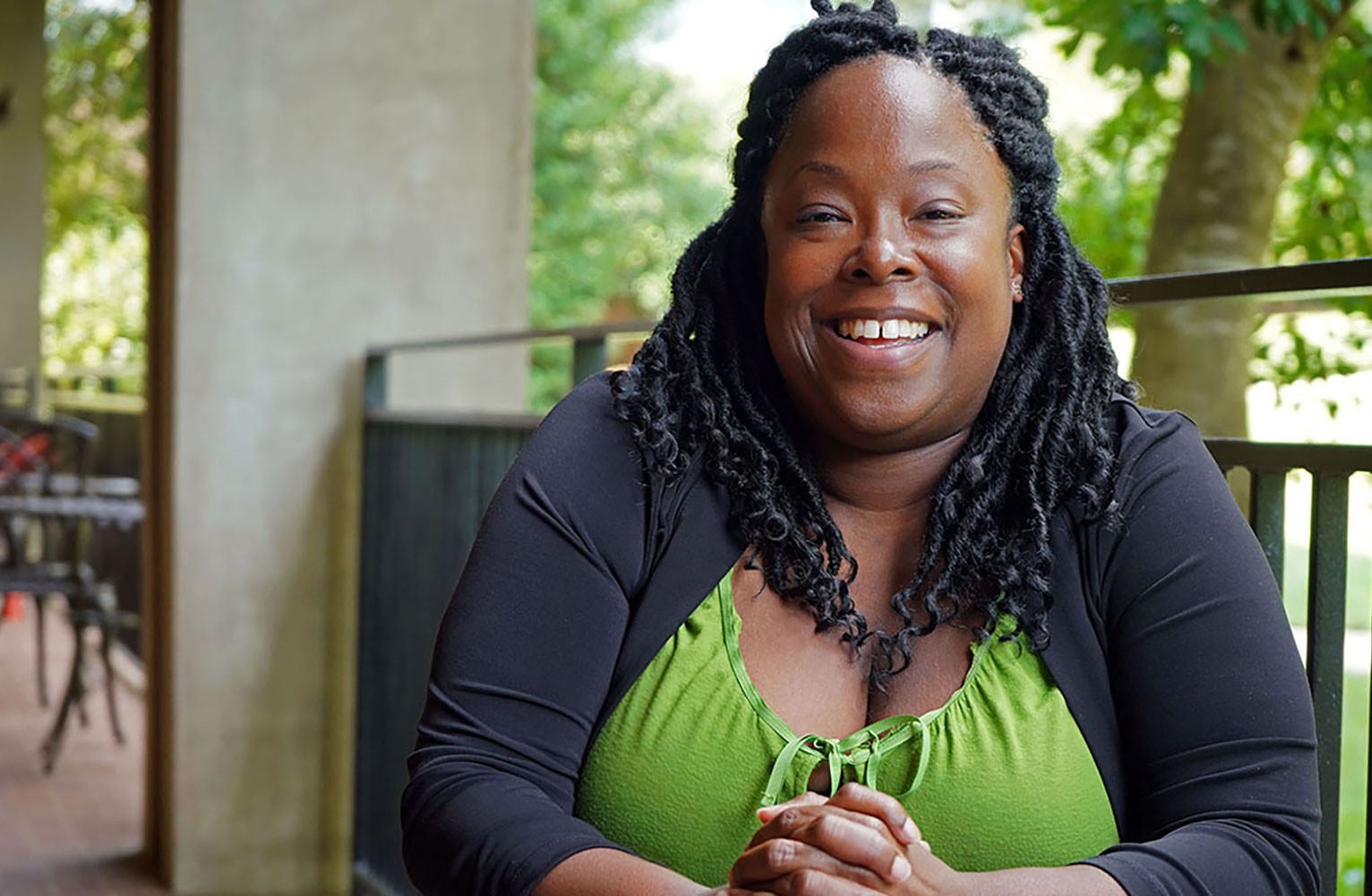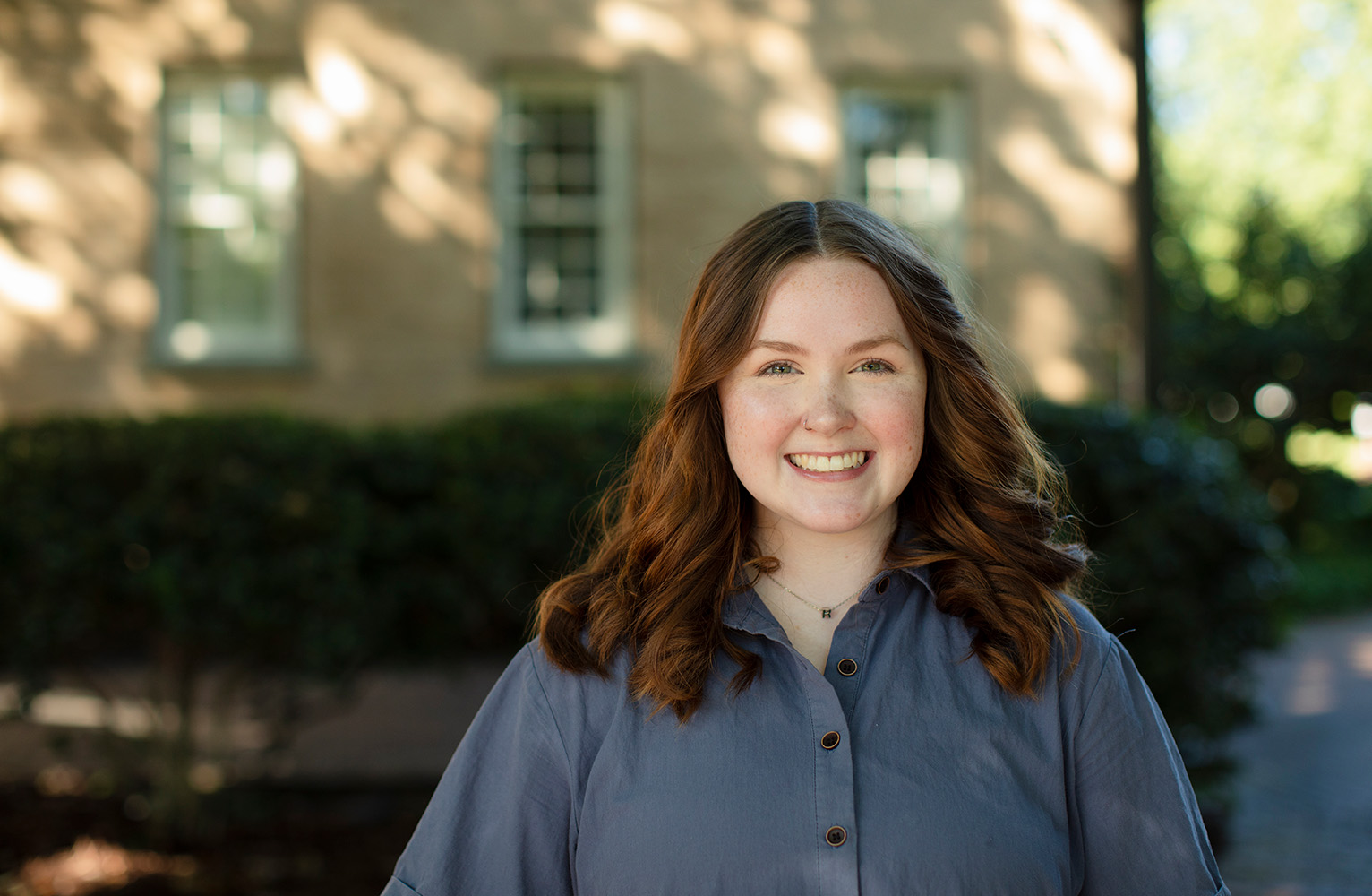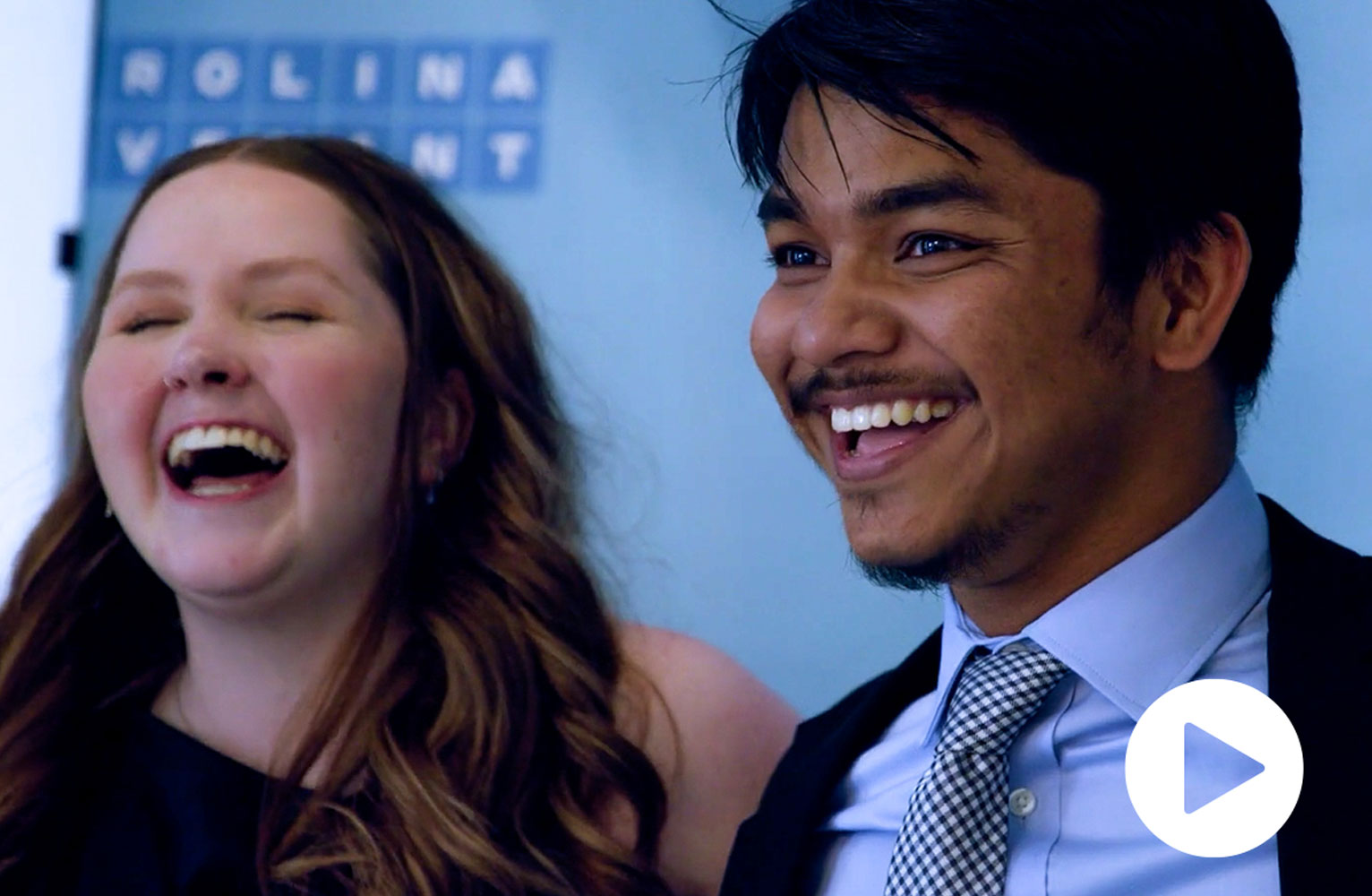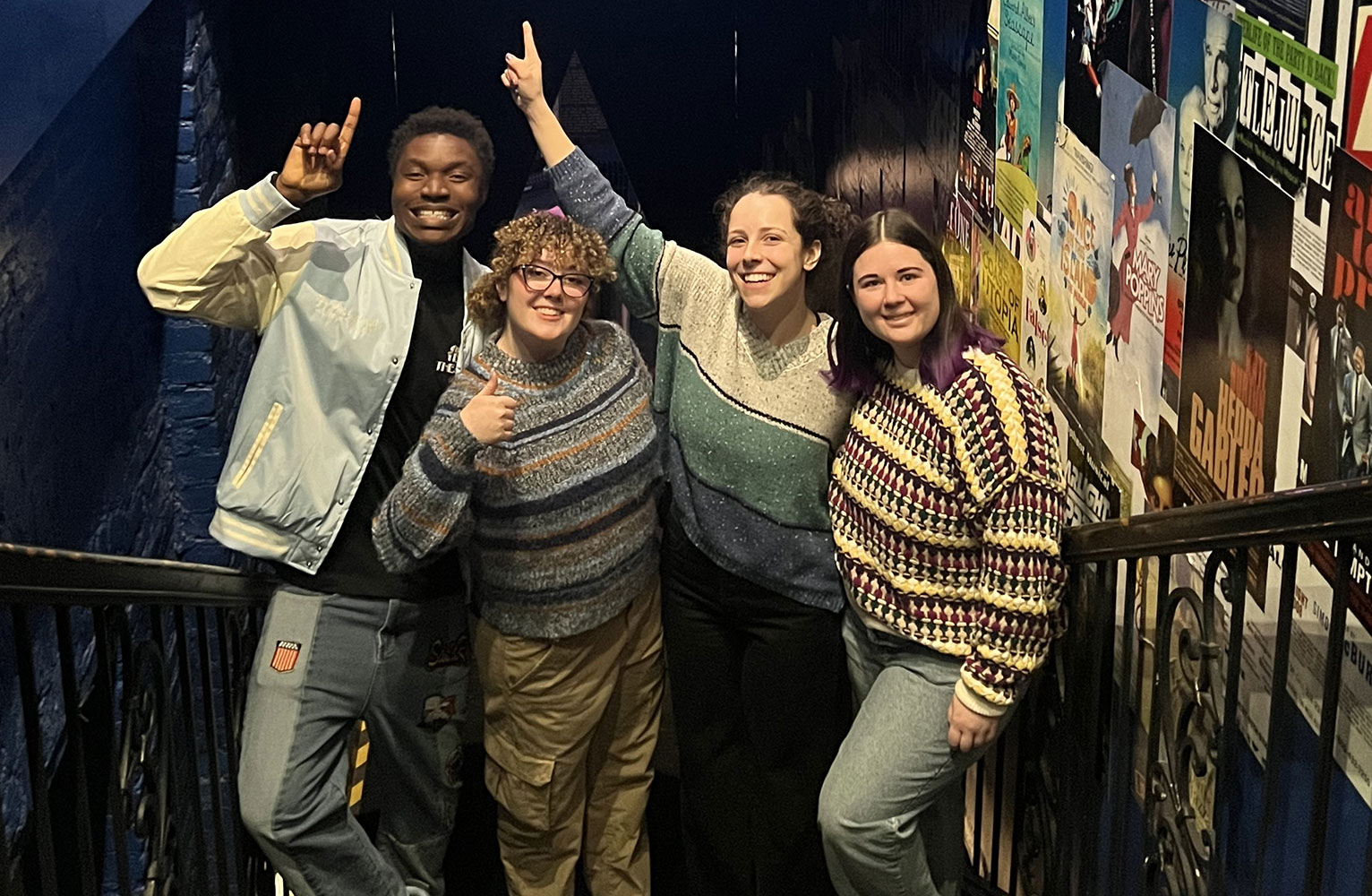
Tora Taylor-Glover ’03
By Audrey Smith ’10
Tora Taylor-Glover ’03 has an office at the UNC School of Law, but she isn’t a lawyer. Taylor-Glover leads mental health outreach events and programming at the school and spends several hours each day in therapy sessions with law students, as the inaugural embedded counselor at the UNC School of Law. She is one of five counselors who is currently embedded in an academic school or program at UNC-Chapel Hill to provide services tailored to the unique needs of students in that program.
The Embedded Counselor Program is one of several initiatives launched by UNC Counseling and Psychological Services (CAPS) since 2020 to make counseling and mental health services more accessible to students.
An increasing need
About six years ago, the demand for counseling and mental health services in higher education began to increase nationwide. Then the COVID-19 pandemic exacerbated gaps in care. CAPS staff have noted that in addition to an increase in the number of students seeking care, students often present with more acute symptoms and need higher levels of support.
The college years are a crucially important time for mental health. Many students find the transition to living away from home to be stressful. Developmentally, most college students are at the age where mental health concerns may first arise, and students may have their first mental health episode during this time. For many students, this is also the first time in their life when they are making their own health care decisions or even have access to counseling and mental health care.
Mental health concerns can have a major impact on academic performance because students who aren’t feeling well won’t perform at their best. The academic year moves quickly, so students who struggle with mental health concerns can fall behind in their classes without quick access to help.
“Having access to quality mental health care during the college years is pivotal,” said Avery Cook, director of CAPS. “We’re committed to removing the barriers that can make mental health care inaccessible to students and ensuring that those who need care never have to wait for it.”
Access care within your own program
The Embedded Counselor Program began after some of the University’s graduate programs expressed a need for more tailored counseling support for their students. In 2020, the Biological and Biomedical Science Program was the first to welcome an embedded counselor. Since then, the program has grown to include counselors within the UNC School of Law, UNC Eshelman School of Pharmacy, UNC Hussman School of Journalism and Media, and UNC Gillings School of Global Public Health.
Embedded counselor services, like those offered at CAPS, can be accessed without a financial charge to the students within that program. Students receive counseling and other services in the same building where they attend classes versus having to go out of their way to CAPS, which removes another common barrier that busy graduate and professional students face to accessing counseling.
“Being situated in the law school, I know the program’s culture and understand the stresses that law students face,” said Taylor-Glover. “My clients are in a very competitive, high-pressure environment, so I’m trying to help equip them with the tools to care for their mental health in this setting and also in the future, particularly with many of them entering high-stress careers.”
Each academic program has the flexibility to use their embedded counselor in the ways that best meet the needs of their program. For example, the embedded counselor at UNC Hussman also serves undergraduate students, and the embedded counselor at UNC Eshelman regularly provides virtual treatment to students at the program’s satellite campus in Asheville.
Story continues below guide to well-being

A Class of 2024 Carolina Covenant Scholar shares her tips on well-being
LAUREN’S TIPS
Ensuring CAPS reaches all students
The Multicultural Health Program also launched in 2020 and seeks to increase access to care among underserved student populations. The catalyst for the program came in spring 2020, when demand for CAPS services was high and many students were vocal about the need for more diverse representation among the CAPS counseling staff. After receiving significant input from students of color, Erinn Scott, a licensed psychologist at CAPS, pitched the idea for the program, which is led by a diverse staff team. The program partners with student groups and other campus organizations to meet underserved students where they are and share about the services available at CAPS. The team also offers brief therapy and group therapy to students at CAPS.
Beyond its ethnic diversity, the Multicultural Health Program team includes a bilingual therapist born outside the U.S. to serve Asian-identified and international students. The team has also been specially trained in racialized trauma and cultural considerations.
“Everyone at CAPS shares the value of cultural competency, but when a clinician matches identities with a student, it can help the student overcome significant barriers around seeking help and support,” said Scott, who is now the assistant director for multicultural health at CAPS. “I want students of color to know that this program was developed to meet their needs and designed based on their specific feedback. Even if they don’t feel like it, this program shows them that they have a lot of power. It exists because of their advocacy.”
During the program’s first year, the staff of the Multicultural Health Program participated in more than 50 student outreach events with groups including the Black Student Movement and the American Indian Center.
In only four years, Scott and her team have seen the program effectively reach underserved students time after time. One such student approached Scott at a stress management outreach event and took a flier about CAPS services. Scott couldn’t tell if she was interested, but soon after the event the student came into CAPS and asked to be matched for counseling with the person she’d spoken to at the event, whom she described as “smiling and laughing” the whole time. When Scott asked her about this during their first meeting, the student shared that she hadn’t been sure that she wanted to go to CAPS, but Scott had really engaged with her and made her feel comfortable enough to try it.
Care when you need it
A recent partnership with AcademicLiveCare is another CAPS initiative that seeks to make counseling more accessible to students. In fall 2021, CAPS partnered with the telehealth program to guarantee immediate access to mental health services. Students can come into CAPS for an initial assessment and then request to receive virtual treatment via AcademicLiveCare, or they can email [email protected] to request a virtual appointment.
AcademicLiveCare is particularly helpful to students who need to access counseling outside of traditional hours or who aren’t comfortable going to CAPS. While CAPS observes traditional business hours, telehealth appointments through AcademicLiveCare can be scheduled in the evenings or over the weekend, making counseling more accessible to students with scheduling concerns. Because there can still be stigma around accessing mental health services, AcademicLiveCare also gives students who don’t want to go to CAPS a way to access care.
Carolina strives to maintain a culture of compassion and care that enables all students to thrive. Any Carolina student who would like to learn more about counseling or other psychological services can call CAPS 24/7 at 919-966-3658. For urgent needs, call or text 988 for the Suicide and Crisis Lifeline or text START to the Crisis Text Line at 741-741.
Additional services are available on the Heels Care Network at care.unc.edu. The website is a comprehensive mental health resource that includes events, news, a filterable resource hub and a peer support chat. Heels Care Network is for all Tar Heels — undergraduate, graduate and professional students, and post-docs, as well as faculty and staff — to come together in support of each other and access the many mental health and well-being resources at Carolina.
Related Stories





